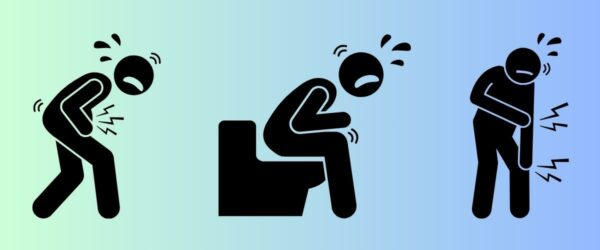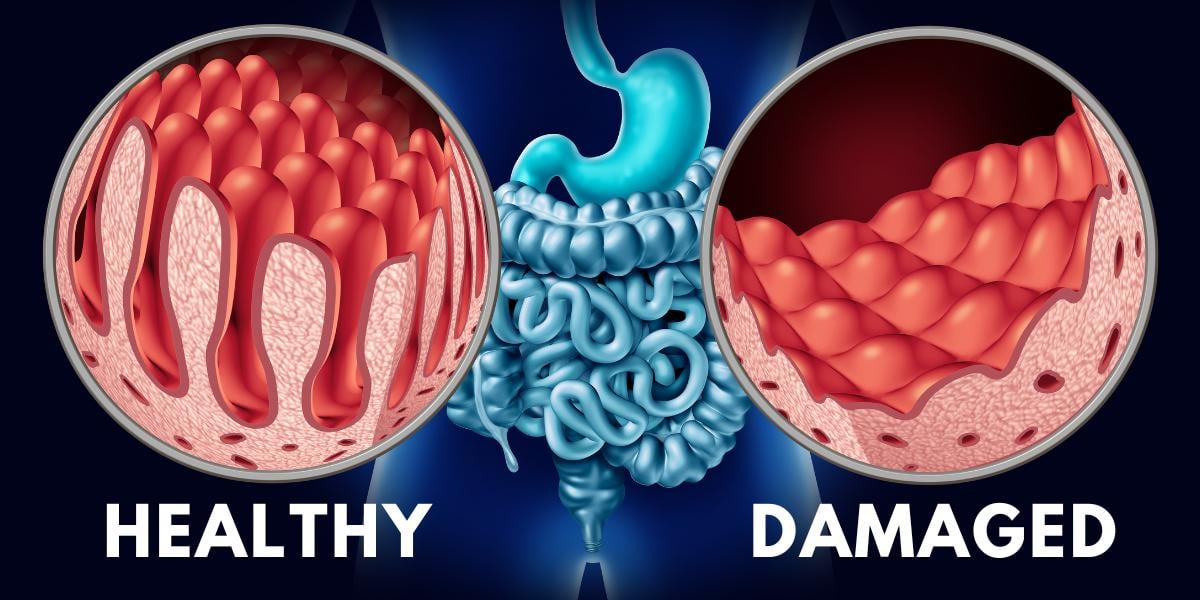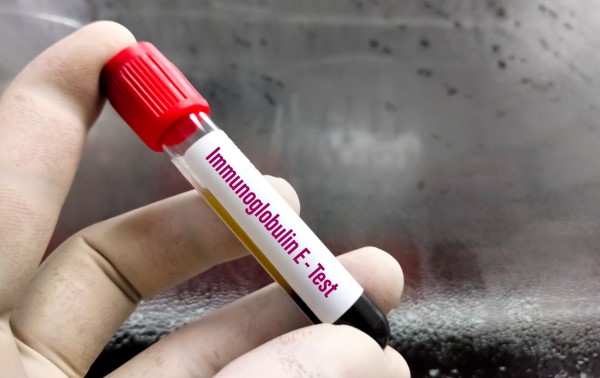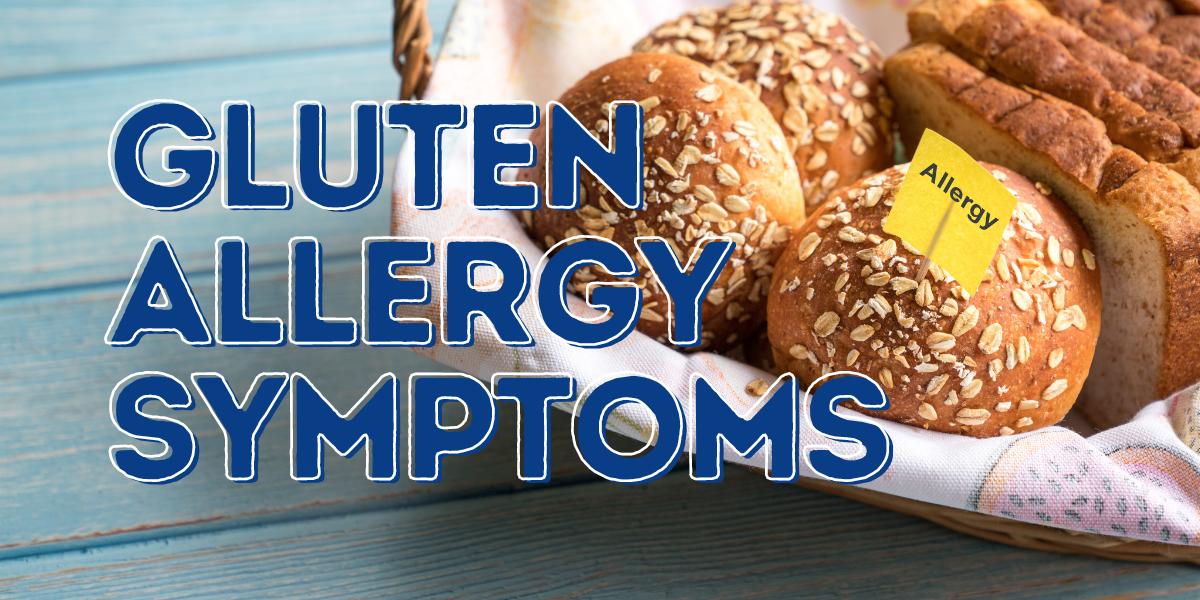Gluten seems to be a hot topic as of late, but people aren’t on the same page about it. One group talks about how they feel better living a gluten-free lifestyle; another group talks about how the gluten-free diet is fake and no one needs it.
But what about the people who may not feel their best and aren’t sure if gluten is the culprit? If you find yourself in this camp, you may have questioned, “What gluten allergy symptoms should I be mindful of?” (“Gluten allergy” is actually a misnomer, but more on that later.)
We understand that there is a lot of conflicting information out there. Since we live, eat, and breathe gluten-free, we decided to break down common signs of gluten intolerance and wheat allergies to help you on your journey toward health.
What Is a Gluten Allergy?
Believe it or not, there is no such thing as a gluten allergy. When people talk about their gluten allergy symptoms or signs, they may mean that they have gluten intolerance symptoms. Still, others will use “gluten allergy” as a catch-all for any gluten issue, even celiac disease, because “allergy” is a phrase that is easy to understand and gets taken very seriously.
While allergies and intolerances may behave similarly in your body, they are fundamentally quite different.
Food Allergies
The Asthma and Allergy Foundation of America estimates that as many as 20 million Americans have food allergies. If you have a food allergy, even a small amount of the problematic food can cause a negative reaction in your immune system, and you may notice the reaction in just minutes — though the reaction can take a day to show up, depending on how severe your allergy is.
When you eat the offending food, your immune system mistakes the food as a threat to the body and then attacks by releasing the antibody immunoglobulin E (IgE), which causes a reaction. The reaction can be something uncomfortable, such as hives or diarrhea, but that is ultimately fairly easy to live with.
Or, the reaction can be something much more severe, such as anaphylaxis, which can cause death.
While many children grow out of their food allergies, there is no cure or medicine to prevent the allergic reaction. People with food allergies shouldn’t consume or even touch the offending food. In some severe cases, even just being in the same room as the food you are allergic to can cause food allergy symptoms.
Food Intolerances
When you have a food intolerance, your issues are limited to your digestive system because your system can’t break down the problematic food. That means you will likely have minor digestive issues, such as an upset stomach, heartburn, or diarrhea. You may even find that you don’t react to the food if you eat it in small amounts, which can be very confusing if you’re trying to figure out what your food triggers are.
Another difference with food intolerance (vs. food allergy) is that you can sometimes get medicine to help mitigate the symptoms of food intolerance and eat the offending food without worry. The most common example of this is taking lactase enzymes when you are lactose intolerant.
Important Note: Some people swear by gluten digestive enzymes to ease the symptoms of gluten intolerance. However, gluten supplements aren’t a proper remedy for celiacs or people with wheat allergies.)

Ways Your Body May React to Gluten
Anyone living a gluten-free lifestyle can attest that giving up gluten can be hard. When I first suspected that gluten was affecting my health, I ignored how gross it made me feel and justified that it was probably something else.
If you don’t feel well after you eat gluten, never ignore the symptoms. Talk to your doctor to find out what is wrong. You may have an intolerance and can eat gluten occasionally, or you may have a potentially life-threatening problem that will only get worse as time goes by.
To get a better picture of what could be happening to you, it is helpful to recognize what gluten allergy symptoms, celiac disease symptoms, and non-celiac gluten sensitivity look like and how they could manifest in your body. (Spoiler: Everyone is very different.)
Celiac Disease
Even though it may seem like celiac disease has only popped up in recent years, it has been around for thousands of years. In fact, it was first written about in a medical description by Aretaeus of Cappadocia somewhere between the first and second centuries, and scientists have continued to study it since then.
Celiac disease is a very serious genetic autoimmune disease that affects nearly 2 million people in the United States.
When you eat gluten and have celiac disease, your immune system attacks the villi in your small intestine. Basically, your body reacts negatively to gluten and begins to harm itself, thinking it’s actually helping protect against the gluten.
The average person’s body uses the villi to take nutrients from your food to your bloodstream. However, if your body has destroyed all of your villi, you will eventually become malnourished, and potentially severely anemic, because your body can’t absorb enough nutrients from the food you eat.

Celiac Disease Symptoms
Bodies are complex. Because of that, symptoms of celiac disease can manifest in different ways for different people. So, it is important to evaluate how you feel. Don’t self-diagnose or justify your symptoms based on how someone else with celiac disease reacts when eating gluten.
Here are some of the signs that you can watch for if you worry you have celiac disease:
- Weight loss
- Tingling or numb legs
- Muscle cramps
- Early osteoporosis
- Hair loss
- Anemia
- Pain in your joints
- Missed menstruation
- Persistent diarrhea or constipation
- Pale, foul-smelling stool
- Rash
- Bloating
- Gas
- Infertility
- Teeth changing color
You won’t necessarily have all of these symptoms at one time, and you may not have many of them. However, if you notice that you have many of these celiac disease symptoms, it likely means your intestines are quite damaged, and you’ll want to see a doctor as soon as possible.
Celiac Disease Testing
Your doctor can do two tests to diagnose you with celiac disease: a biopsy or a blood test. If you have recently stopped eating gluten before your doctor tests you, they will likely request that you continue eating gluten for at least six weeks before the test, depending on how severe your symptoms are. They do this to ensure the tests are as accurate as possible.
A biopsy is the most precise way to diagnose celiac disease. While you are sedated, your doctor will place a scope down your throat and into your small intestine, where they will take a sample of your tissue. They will then send the sample to a lab for testing.
If your doctor does a blood test, they will take a sample of your blood and send it to the lab. The lab will test it for celiac antibodies. If you have celiac disease, you should have high antibodies because your body thinks it is protecting itself.
Managing Celiac Disease Symptoms
The only way to treat celiac disease is to remove all gluten from your diet.
You may be tempted to “cheat” and eat gluten occasionally, but remember that every time a celiac eats gluten, they are damaging their body even if their symptoms aren’t severe.
Gluten can be found in many food products, so it is important that you vigilantly check everything you purchase. Examples of things to watch for and eliminate are:
- Malt
- Rye
- Barley
- Oats (purity protocol oats are safe)
- Brewer’s Yeast
Your intestines should heal in six months to a year after you stop eating gluten, but you may notice that you feel better even just a few days after you take gluten out of your diet.
Remember that feeling better doesn’t mean you are cured. Celiac disease is a life-long condition that you always have to care for.

Non-Celiac Gluten Sensitivity
Did you know that as much as 6% of the United States population has non-celiac gluten sensitivity, also known as gluten intolerance? If you have this issue, your body can’t break down gluten in your food, causing many gastrointestinal symptoms, among other non-GI issues.
Some non-celiac gluten sensitivity symptoms may mimic celiac disease, but NCGS doesn’t damage the small intestines like celiac disease does. Additionally, the symptoms of NCGS go away once you stop eating gluten.
Non-Celiac Gluten Sensitivity Symptoms
If you think you may be one of the 6% with gluten intolerance, you need to know what signs to look for.
Here’s a gluten intolerance symptoms checklist:
- Trouble concentrating (brain fog)
- Rash
- Headache
- Nausea
- Vomiting
- Constipation
- Diarrhea
- Abdominal pain
- Anemia
- Fatigue
- Joint pain
- Bloating
- Anxiety
- Depression
It is important to remember that symptoms of NCGS aren’t the same for everyone. If you notice any of the above signs when you eat gluten, speak with your doctor for further evaluation.
Non-Celiac Gluten Sensitivity Testing
While there is no test to diagnose NCGS specifically, your doctor can rule out other, more serious issues.
Managing Symptoms of Non-Celiac Gluten Sensitivity
To alleviate the symptoms of NCGS, change to a gluten-free diet and take measures to improve the health of your gut. You can do this through probiotic-rich foods, such as kimchi, yogurt, miso, kombucha, and kefir.
Wheat Allergy
Very young children typically get wheat allergies and can often grow out of them by the time they are 16 years old. However, approximately 34% of children with a wheat allergy don’t outgrow it; it stays with them until adulthood.
Additionally, adults may develop a wheat allergy later in life for various reasons, including family history and gut health.
Many people confuse celiac disease with a wheat allergy, but they are very different. If you have a wheat allergy, your body reacts negatively to the proteins found in wheat. Those proteins are gluten, gliadin, albumin, and globulin.
When you eat wheat and have a wheat allergy, your immune system overreacts in two ways.

Non-Immunoglobulin E Mediated Reaction
If you have non-IgE reactions to gluten, your body will typically react slower after you eat wheat. Symptoms may take up to two days to manifest. Your body will release too many white blood cells to protect itself, typically resulting in inflammation in your esophagus or stomach lining.
Immunoglobulin E Mediated Reaction
With an IgE reaction, your body creates the antibody immunoglobulin E to protect your immune system from the wheat. The reaction happens very quickly after you eat or even inhale any wheat. The way your body reacts may also be more severe with an IgE reaction.
Wheat Allergy Symptoms
The potential symptoms of a wheat allergy are:
- Headache
- Congestion
- Hives
- Rash
- Diarrhea
- Cramps
- Nausea
- Vomiting
- Swelling or irritation of the mouth
- Anaphylaxis
If you have anaphylaxis, it is important to understand how that may manifest. If you notice any of these symptoms, you need to call 911 immediately:
- Dizziness or fainting
- Labored breathing
- Pain or tightness in your chest
- Pale, blue skin
- Difficulty swallowing
- Swelling in your throat
Reactions to your wheat allergy could last a few hours but may last a few days after exposure, depending on how severe your allergy is.
Wheat Allergy Testing
If you suspect you have a wheat allergy, you can have your doctor do a skin prick test. With this test, the doctor will use a lancet to put small amounts of the allergen under the skin’s surface. Inserting the allergen is very fast and doesn’t hurt.
The doctor will then monitor you for 30 to 40 minutes and check you for reactions. If you have a noticeable reaction to the wheat test in the form of redness or swelling at the test site, then you have a wheat allergy.
Managing Wheat Allergy Symptoms
When you have a wheat allergy, you must avoid everything made from wheat. This can sometimes be easier said than done, as wheat is often hidden in many products. Besides the usual bread, crackers, and pasta that we already know contain wheat, it can also be hidden in meat, soy sauce, ice cream, and candy.
The best way to avoid wheat is to check the nutrition labels on everything you want to eat. Luckily, the FDA requires wheat to be clearly labeled on all food packages.
Also, don’t forget to ask your doctor if you need to keep an epinephrine pen (EpiPen) with you at all times in case you have an allergic reaction to wheat.
Gluten Allergy Symptom FAQ
How much gluten can cause a reaction?
Depending on how your body reacts to gluten, even something as small as a crumb can cause a negative reaction.
Are gluten allergy symptoms in adults different than in children?
Regardless of your age, the signs of a gluten allergy tend to be the same in everyone. The main exception is that children with untreated gluten allergy symptoms tend to grow slower than other children.
What are gluten intolerance symptoms adults should watch for?
If you think you have gluten intolerance, you want to be mindful of the following symptoms after you eat gluten:
- Trouble concentrating (brain fog)
- Rash
- Headache
- Nausea
- Vomiting
- Depression
- Constipation
- Diarrhea
- Abdominal pain
- Anemia
- Fatigue
- Joint Pain
- Bloating
- Anxiety
What wheat allergy symptoms do adults keep from childhood?
Many children grow out of their wheat allergy. However, if you keep it into adulthood, you want to be mindful if you have hives or a rash, vomiting, stomach cramps, and swelling in your mouth. People with a severe allergy have trouble breathing or even go into anaphylaxis.
Your Guide To Gluten Allergy Symptoms
We understand that figuring out why you always feel sick can be a journey, and identifying if gluten is harmful to you can take some serious time and patience. Truthfully, it can be a really frustrating experience!
However, your life will improve dramatically when you identify what gluten allergy symptoms mean for you and how to manage them. If you have any unusual symptoms when you eat wheat or gluten, let us know so we can pass it on to our readers!
Please realize that when you stop eating gluten, things will change for you in a lot of ways. But there are so many gluten-free products and even gluten-free fast food options, so you won’t lose out completely on the social aspects that come with eating out.
But you WILL feel so much better, and it’s worth the life changes.
At Gluten-Free Grubbin’, we acknowledge that while we fancy ourselves experts on gluten-free living, we are not doctors. This article is strictly informational and should not be taken as medical advice. If you have any questions regarding your health and how your body may manifest gluten allergy signs, please see your doctor as soon as possible.
Go get your grub on!








